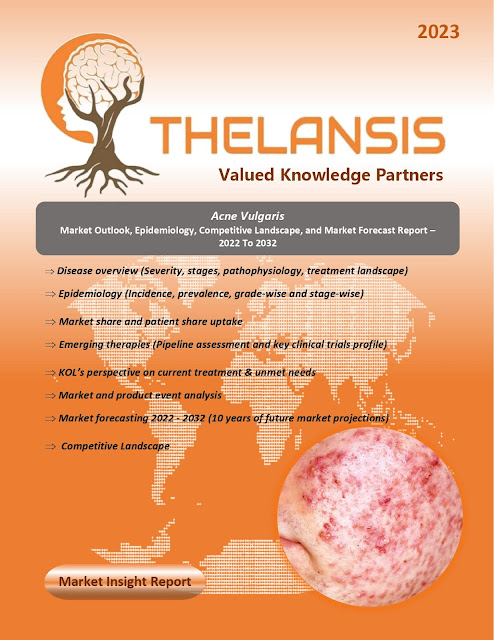Atypical Hemolytic Uremic Syndrome (aHUS) – Market outlook, Epidemiology, Competitive Landscape and Market Forecast Report – 2020 To 2030
Atypical hemolytic uremic
syndrome (aHUS) is an extremely rare disease characterized by low levels of
circulating red blood cells due to their destruction (hemolytic anemia), low
platelet count (thrombocytopenia) due to their consumption and inability of the
kidneys to process waste products from the blood and excrete them into the
urine (acute kidney failure), a condition known as uremia.
Etiology-
The genes associated with genetic aHUS include
C3,
CD46 (MCP), CFB, CFH, CFHR1, CFHR3, CFHR4, CFI, DGKE, and THBD. Mutations in these genes increase the likelihood (predisposition) to developing aHUS, rather than directly causing the disease. Most cases are sporadic. In familiar cases, predisposition to aHUS is inherited in an autosomal dominant or an autosomal recessive pattern of inheritance.
Epidemiology-
The exact overall incidence and prevalence is unknown. One study placed the incidence in the United States at 2 individuals per 1 million in the general population. In Europe, the disorder is estimated to affect approximately .11 per 1 million individuals between the ages of 0-18.
The competitive landscape of Atypical
Hemolytic Uremic Syndrome (aHUS) includes country-specific approved as well as pipeline
therapies. Any asset/product-specific designation or review and Accelerated
Approval are being tracked and supplemented with analyst commentary.
KOLs insights of Atypical Hemolytic Uremic
Syndrome (aHUS) across 8 MM market from the center of Excellence/ Public/
Private hospitals participated in the study. Insights around current treatment
landscape, epidemiology, clinical characteristics, future treatment paradigm,
and Unmet needs.
Atypical Hemolytic Uremic Syndrome (aHUS) Market
Forecast: Patient Based Forecast Model (MS. Excel Based Automated Dashboard)
which Data Inputs with sourcing, Market Event, and Product Event, Country
specific Forecast Model, Market uptake and patient share uptake, Attribute
Analysis, Analog Analysis, Disease burden, and pricing scenario, Summary, and
Insights.
S. No Asset Company Stage
1 Crovalimab Chugai Pharmaceutical Phase 3
2 Ravulizumab Alexion Pharmaceuticals Phase 3
3 Iptacopan Novartis Pharmaceuticals Phase 3




Comments
Post a Comment